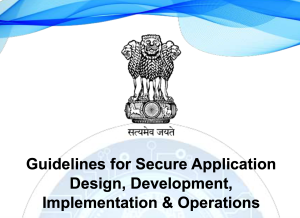
India, a vibrant nation with a rich history, has had its fair share of challenges when it comes to its relationships with neighboring countries. Two significant relationships that have garnered attention over the years are those with Pakistan and China. In this blog post, we will explore how India has handled these complex geopolitical dynamics, highlighting key events, diplomatic approaches, and the broader implications for regional stability.

India-Pakistan Relations: India and Pakistan share a complex history marked by conflicts, territorial disputes, and political tensions. Despite the challenges, India has strived to maintain open channels of communication and engagement with its neighbor, while firmly addressing issues of concern. Here are some key aspects of India’s approach:
- Bilateral Talks: India has consistently emphasized the importance of dialogue and peaceful negotiations to resolve outstanding issues. Several bilateral talks and initiatives have been undertaken to address topics such as terrorism, border disputes, and trade relations.
- Cross-Border Security: India has faced security challenges due to cross-border terrorism originating from Pakistan. To protect its interests and maintain stability, India has implemented various measures to secure its borders and enhance intelligence cooperation with other countries.
- Regional Cooperation: India has actively participated in regional organizations such as the South Asian Association for Regional Cooperation (SAARC) and the Shanghai Cooperation Organisation (SCO). These platforms provide opportunities for dialogue, cooperation, and addressing common challenges faced by the member countries.

India-China Relations: India’s relationship with China has also been complex, characterized by territorial disputes, economic competition, and geopolitical rivalries. Here are some key aspects of India’s approach:
- Diplomatic Engagement: India has engaged with China through diplomatic channels to maintain open lines of communication and manage areas of disagreement. High-level visits, bilateral meetings, and diplomatic dialogues have been crucial in fostering understanding and addressing issues.
- Border Management: India and China share a disputed border, and occasional tensions have arisen in specific regions. India has focused on enhancing border management mechanisms and confidence-building measures to prevent escalations and maintain peace and stability.
- Economic Cooperation: India and China are major economic players in the region. While economic competition exists, both countries recognize the potential for collaboration and mutual benefit. Trade and investment ties have been cultivated, although efforts to address trade imbalances and market access issues continue.
- Multilateral Engagement: India actively participates in multilateral forums such as the United Nations and the BRICS (Brazil, Russia, India, China, South Africa) grouping. These platforms provide opportunities for dialogue, cooperation on global issues, and the exchange of perspectives.

Managing relations with Pakistan and China presents unique challenges for India. Through diplomatic engagement, regional cooperation, and a focus on maintaining peace and stability, India has demonstrated its commitment to addressing contentious issues and finding common ground. While tensions may arise periodically, India’s approach emphasizes dialogue, cooperation, and a long-term vision of regional stability and prosperity.

As India continues to navigate its relationships with Pakistan and China, the country’s diplomatic efforts, strategic partnerships, and pursuit of economic cooperation will shape the future of these complex geopolitical dynamics. By promoting peaceful resolutions, fostering regional cooperation, and prioritizing national interests, India seeks to foster a more stable and prosperous South Asian region.
NDTV Public Opinion: How India Has Handled Pakistan, China
- Public opinion is divided on how India has handled Pakistan and China. Some people believe that India has been too soft on Pakistan and China, while others believe that India has been too aggressive.
- There is a strong sense of nationalism in India, and many people believe that India should take a tough stance on Pakistan and China. This is due to the fact that both countries have been involved in terrorism and other activities that have harmed India.
- The Indian government has taken a number of steps to deal with Pakistan and China. These include increasing military spending, conducting military exercises, and imposing sanctions.
- The Indian government has also tried to engage in dialogue with Pakistan and China. However, these talks have so far been unsuccessful.
- The situation between India, Pakistan, and China is complex and there is no easy solution. India will need to continue to use a combination of diplomacy, military strength, and economic power in order to manage its relations with these two countries.
Here are some additional details from the NDTV Public Opinion poll:
- 52% of respondents said that India has been too soft on Pakistan.
- 38% of respondents said that India has been too aggressive on China.
- 63% of respondents said that India should take a tougher stance on Pakistan.
- 57% of respondents said that India should take a tougher stance on China.

These results suggest that public opinion in India is strongly in favor of a tougher stance on Pakistan and China. This is likely due to the fact that both countries have been involved in terrorism and other activities that have harmed India.





